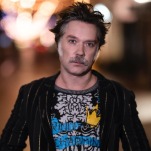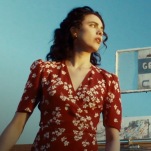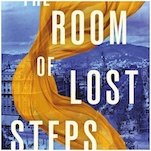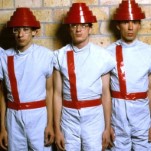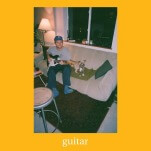The Monster
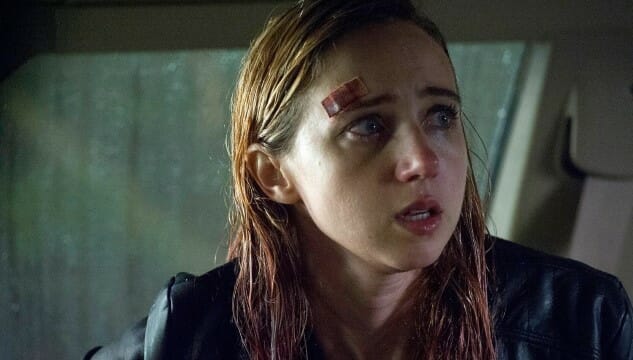
For genre geeks, when you see a horror title like The Monster in 2016, it’s hard to know what exactly to make of it. Is this an earnestly titled monster movie that just so happens to generically sound like something from Universal in the ’40s? Or is it some kind of heavy-handed metaphor begging its audience to consider who the “real monster” is in this story? Or both? Regardless of which: Does The Monster really seem like a title you would stop to examine in more depth while browsing a VOD service on your couch—or is it just going to make your eyes glaze over? I know what the answer would be for me.
Bryan Bertino’s The Monster takes place at the crossroads between a serviceable drama and a middling horror film. Each exists in its own parallel dimension, and despite the director’s clear intentions to bring those dimensions together, each is a detriment to the other.
On one hand, we have a family drama revolving around an addict single mother and her nebulously aged daughter, who I believe the film would like me to describe as “precocious” for reasons that are in no way earned. Mom hits the bottle hard, and perhaps dabbles in some other substances as well, while fighting anyone who gets close enough for her to yell at. Some of these sequences are effective enough, such as the flashback to a screaming match the mother and daughter have in the garage as their relationship fractures further. Others are genuinely irritating, especially any instance where the daughter, clearly too old for stuffed animals, escapes into fantasy with a stuffed dog that plays a maddening version of “Pop Goes the Weasel” whenever it’s squeezed. That’s your film for the first 45 minutes: a series of flashbacks and limited exposition illustrating how a resilient daughter has coped with her mother’s bullshit for the last few years before finally requesting to live with her father.
You take the good with the bad in exploring this relationship, which is central to the film. The naturalistic dialogue is “realistic” but simultaneously off-putting. After all, film characters speak differently than real people speak because the banality of real-life conversations typically doesn’t make for entertaining cinema—it’s a matter of the characters available to us, and the interactions they’re capable of having with the tools they’re given. Zoe Kazan effectively evokes the selfishness of a young mother who resents her own child and actively seems to be fighting any sense of responsibility. As the child, meanwhile, Ella Ballentine is clearly damaged, regressive and withdrawn into her own mind. Their sparring is occasionally powerful, but the subservience to “realism” dooms their on-screen relationship to abject squabbling rather than any deeper revelations. Whether or not it’s actually likely to occur in a survival situation, one wishes that the pair might have had a more substantive conversation written for them.
-

-

-

-

-

-

-

-

-

-

-

-

-

-

-

-

-

-

-

-

-

-

-

-

-

-

-

-

-

-

-

-

-

-

-

-

-

-

-

-

